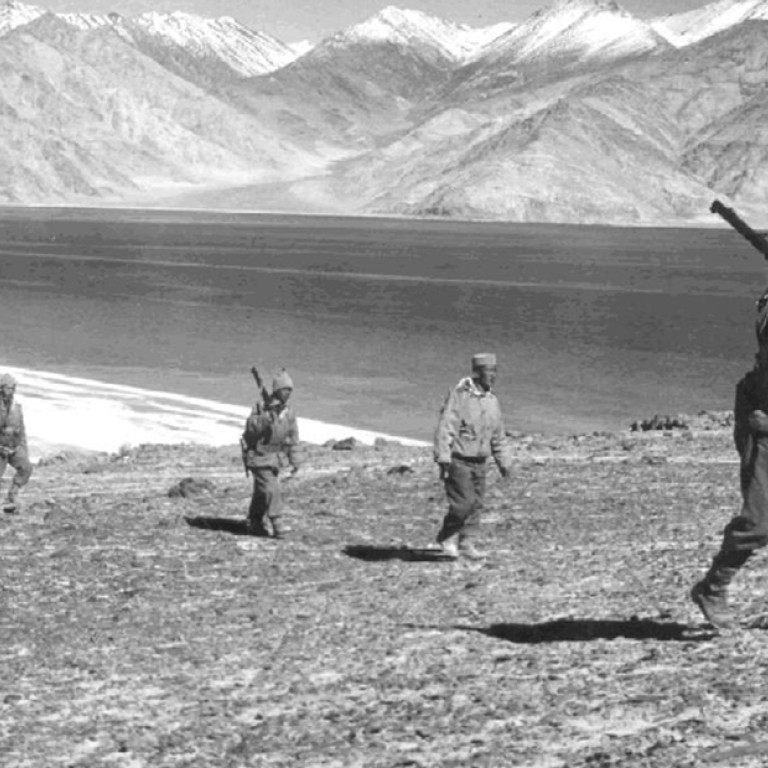
Revealing India's failures in 1962 war with China can help clear the air
Neeta Lal says it is high time for New Delhi to declassify report to bring closure and improve ties
In India's heated pre-election atmosphere, the leaking online of parts of the Henderson Brooks report - the Indian army's internal operational review of the country's ignominious defeat in the 1962 war against China - has predictably raised the political temperature.
Access to it was blocked for hours after parts were put up online by Neville Maxwell , the retired New Delhi correspondent for . Maxwell is the author of a controversial 1970 book, based on the top-secret report.
Though the Indian government denied having anything to do with the internet block, the crackdown smacked of naivety on the part of the world's largest democracy in an era when sophisticated technology facilitates access to such documents in a trice.
Despite the passage of more than half a century, the full report remains a closely guarded secret by New Delhi. Commissioned in the aftermath of the war by the then army chief, General J.N. Chaudhuri, and submitted by Lieutenant General Henderson Brooks and Brigadier P.S. Bhagat in April 1963, it gives a blow-by-blow account of India's flawed military plans, uninspiring army leadership and the disastrous implementation of the "forward policy" of then prime minister Jawaharlal Nehru's government that climaxed in the fateful debacle.
The report is particularly scathing of Nehru's policy, which contributed to India's defeat. "We acted," says the report, "on a military unsound basis of not relying on our strength but rather on believed lack of reaction from the Chinese."
Maxwell tells on his website of his frustration at not seeing the report declassified after more than half a century.
"The reasons for the long-term withholding of the report must be political, indeed probably partisan, perhaps even familial," he wrote - a reference to Nehru, the patriarch of the ruling Nehru-Gandhi dynasty, which has dominated India's political matrix for over a century.
Though demands for the report to be made public have surfaced sporadically, the government has remained unyielding, offering only an occasional dispassionate riposte. "Based on an internal study by the Indian army, the contents are not only extremely sensitive but are of current operational value," Defence Minister A.K. Antony told the lower house of Parliament in a written reply in April 2010. However, what "operational value" the document may still have after the passage of 51 years - and how it may threaten national security - continues to boggle the minds of contemporary strategic thinkers and policy pundits.
After the leaks surfaced, several Indian newspapers again demanded that the government declassify the report. "Most democracies declassify secret documents after a reasonable period of 25-30 years," said in an editorial. "It's time India too adopted such a policy."
Indeed, the episode requires a more enlightened response from a mature political democracy.
The fact that the establishment has never conducted a public debate or parliamentary inquiry into the greatest military debacle in the history of independent India only highlights the need to declassify the report. The people have a right to know. The government needs to share with the public the hows and whys of exactly what transpired.
Declassifying the report would also provide a semblance of closure and allow the military and political leadership to move forward. And the army can still learn from its strategic failures.
Declassification could also be a way to revisit past China policy, which should now be more accommodating of the festering border dispute.
For now, New Delhi's paranoia over the report underscores its continued distrust of Beijing as an unreliable neighbour bent on territorial aggression. A more measured response, one based on a coherent and informed public debate on the war, is in order.
All the main protagonists of the war are, in any case, now gone.
A robust discussion on what went wrong, and how such a debacle can be averted in the future, could ensure that India avoids a similar humiliation.
As President Xi Jinping prepares to visit India later this year, both New Delhi and Beijing should use the opportunity to strengthen their ties.
It's time to stop viewing bilateral relations through the rusty prism of the 1962 war.
Eschewing past baggage will enable both Asian giants to broaden their scope of engagement and build a relationship premised on mutual trust and respect.
At a time when regional geopolitics is fraught with asymmetries and tension, charting a long-term and sustainable plan for enduring co-operation and mutual benefit, rather than dwelling on the past, has to be the way forward.

